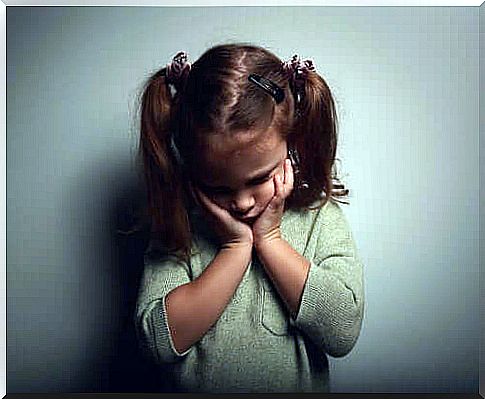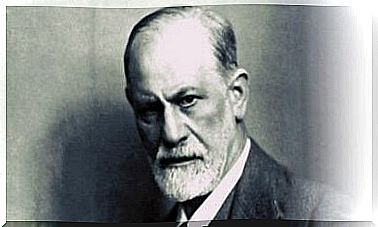What Is Emotional Deprivation?

People who have experienced emotional deprivation show a set of characteristics that arise as a result of lack of affection in childhood. Childhood is a phase of life in which every human being is deeply vulnerable. What happens during these years leaves lasting traces that can manifest through a person’s life.
Lack of affection in childhood prevents healthy emotional development. Babies and children need recognition through caresses, words, care and emotional support. When a child does not get this, injury occurs and prevents psychological development from following its natural course.
Emotional deprivation causes a deep conviction that you are not worth loving. There is also a significant dissatisfaction with yourself and a deep fear of being abandoned. A person may have these traits throughout life, but they manifest differently in each age.

Signs of emotional deprivation
There are some commonalities that are present in people who have signs of emotional deprivation. Although many people may have felt that they are not loved, what separates this feeling from the syndrome is in itself the stability of the symptoms.
The most common signs of emotional deprivation are the following:
- Feelings of worthlessness. The person feels that they are not worth much. They constantly doubt their abilities and believe that most circumstances are beyond their power or ability.
- Perceptions of error. People with this disorder often feel that they have failed, even if they have not. They also strongly criticize themselves.
- Lack of self-love. These people have no sympathy for themselves. They find it difficult to find virtues in themselves, and when they do, they quickly minimize them. They essentially despise themselves.
- Avoid social situations. It is difficult for people with this disorder to show what they think or feel to others, since they have a strong fear of rejection. In the same way, they struggle with these situations when they experience rejection.
- Instability. They tend to be unstable in their interpersonal relationships.
Manifestations of emotional deprivation according to age
As we have pointed out, this manifests itself differently according to age. However, important features are present at all ages, although the way it is expressed varies depending on the degree of maturity and environment.
In terms of age, these are examples of how this disorder can manifest itself:
- Early childhood. Babies or children with this disorder can cry a lot, rarely smile and have frequent infections. It is common for them to experience digestive problems. In addition, these children do not always grow normally.
- Preschool age. These children are concerned about relationships with their peers and often have language problems.
- Primary school age. Learning difficulties, focusing and concentration difficulties and feelings of worthlessness are common. The child may doubt himself and refer negatively to himself. They may also think they are annoying others.
- Adolescence. Teenagers with this disorder tend to be impulsive, active and preoccupied with appearance. They can get very excited and may have symptoms of addiction.
- Adult life. Usually, adults show isolation, lack of commitment to goals, and frequent feelings of defeat. They are also unable to establish healthy relationships and can stay back at work.

What can you do?
Realistically, you can never completely solve an emotional deprivation from childhood. However, this does not mean that it is impossible. You can learn to live with a lack of love in childhood, and you may even be able to take advantage of it. But the hardest part is getting started. When you take the first step, things become clearer.
In these cases, it is best to start psychological therapy with a sufficiently experienced professional. Certain therapies or psychoanalysis usually work very well in these situations. However, people with this disorder tend to idealize their therapist. Thus, they must learn to respond to this over-expectation.
It is not easy to overcome this situation yourself, since it is a very difficult disorder. Without external support, the person stops healing the internal wounds. Still, art, reading, meditation and sports are factors that help a lot.









